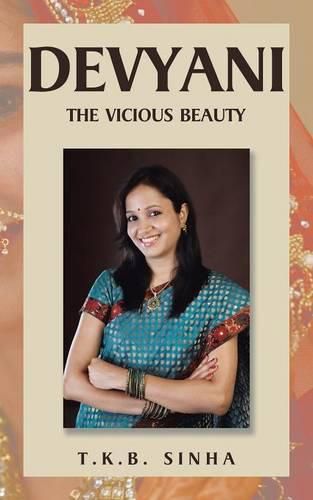Readings Newsletter
Become a Readings Member to make your shopping experience even easier.
Sign in or sign up for free!
You’re not far away from qualifying for FREE standard shipping within Australia
You’ve qualified for FREE standard shipping within Australia
The cart is loading…






This title is printed to order. This book may have been self-published. If so, we cannot guarantee the quality of the content. In the main most books will have gone through the editing process however some may not. We therefore suggest that you be aware of this before ordering this book. If in doubt check either the author or publisher’s details as we are unable to accept any returns unless they are faulty. Please contact us if you have any questions.
The traditional view of a mythological character is that it is staid, flat, and uninteresting, belonging to an unreal world of the days gone by. But contrary to this, Devyani, the daughter of a sage, is surprisingly different. She is not only vivacious and enticing but also a tempestuous lover, free-willed, and unyielding. Being a spoilt child, she is in the habit of getting things done at any cost. She makes her father revive her lover Kutch (killed twice by the demons) to life because she says she can’t live without him. Unlike most of the present-day girls, she offers herself to the young man to marry her, but at his refusal (for personal reasons), she curses him. When she is rescued by Yayati (a Kshatriya king) from the blind well, into which she had fallen, she asks him to marry her because he had held her by the hand. Yayati is reluctant as they belong to different social strata, where the customs do not allow such wedlock, but she is determined to have her way. She pressures her unwilling father to perform her marriage, which the poor man does despite the unfavorable customs. He can’t displease his daughter. She has no qualms about blackmailing the king (in whose court her father was an advisor) to give away his daughter, Sharmistha, as her permanent slave when she goes to her husband’s house. The fact that both the girls were bosom friends did not deter her from her meanness. It is surprising to note that such a liberated and strong female character was created in an epic thousands of years ago.
$9.00 standard shipping within Australia
FREE standard shipping within Australia for orders over $100.00
Express & International shipping calculated at checkout
This title is printed to order. This book may have been self-published. If so, we cannot guarantee the quality of the content. In the main most books will have gone through the editing process however some may not. We therefore suggest that you be aware of this before ordering this book. If in doubt check either the author or publisher’s details as we are unable to accept any returns unless they are faulty. Please contact us if you have any questions.
The traditional view of a mythological character is that it is staid, flat, and uninteresting, belonging to an unreal world of the days gone by. But contrary to this, Devyani, the daughter of a sage, is surprisingly different. She is not only vivacious and enticing but also a tempestuous lover, free-willed, and unyielding. Being a spoilt child, she is in the habit of getting things done at any cost. She makes her father revive her lover Kutch (killed twice by the demons) to life because she says she can’t live without him. Unlike most of the present-day girls, she offers herself to the young man to marry her, but at his refusal (for personal reasons), she curses him. When she is rescued by Yayati (a Kshatriya king) from the blind well, into which she had fallen, she asks him to marry her because he had held her by the hand. Yayati is reluctant as they belong to different social strata, where the customs do not allow such wedlock, but she is determined to have her way. She pressures her unwilling father to perform her marriage, which the poor man does despite the unfavorable customs. He can’t displease his daughter. She has no qualms about blackmailing the king (in whose court her father was an advisor) to give away his daughter, Sharmistha, as her permanent slave when she goes to her husband’s house. The fact that both the girls were bosom friends did not deter her from her meanness. It is surprising to note that such a liberated and strong female character was created in an epic thousands of years ago.